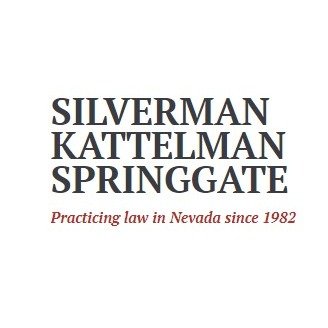Best Estate Planning Lawyers in Nevada
Share your needs with us, get contacted by law firms.
Free. Takes 2 min.
Or refine your search by selecting a city:
List of the best lawyers in Nevada, United States
United States Estate Planning Legal Questions answered by Lawyers
Browse our 2 legal questions about Estate Planning in United States and read the lawyer answers, or ask your own questions for free.
- My husband passed away five years ago. We have a property in th Philippines and I would like to transfer everything to my child. We are now residing in California, as U.S. citizens and my late husband a Filipino citizen.c
- How can I transfer Title on the property to my child?
-
Lawyer answer by Recososa Law Firm
Hello: We are sorry to hear about the passing of your husband, and we extend our deepest condolences. Regarding your concern, since your husband was a Filipino citizen and you are now both U.S. citizens residing in California, the property...
Read full answer - How to protect property from squatters law
- Deed in my mom's name. She died 18 years ago. Son is named as administrator but not as owner. We live in USA so let Non relative live there for 45-50 year but had no formal contract. Let him live there free as long as he paid utilities and taxes.... Read more →
-
Lawyer answer by M BILAL ADVOCATES, CORPORATE & TAX CONSULTANTS
After completing probate to establish yourself as the legal heir, you can transfer the property title to your name and then grant them permission to reside there through a formal agreement. It is worthy to note that you can do...
Read full answer
About Estate Planning Law in Nevada, United States
Estate planning in Nevada involves preparing documents and legal strategies to manage and distribute your assets upon death or incapacity. It includes creating wills, trusts, powers of attorney, and advance health care directives. Estate planning ensures that your financial and personal affairs are handled according to your wishes, prevents unnecessary delays in asset distribution, and protects your loved ones from potential disputes. Nevada is known for its favorable laws, particularly regarding trusts and asset protection, making it an attractive state for comprehensive estate planning.
Why You May Need a Lawyer
There are several scenarios where consulting an estate planning attorney in Nevada can be beneficial:
- You want to make sure your will is legally valid and cannot be contested easily.
- You have minor children and need to designate guardianship or manage assets through a trust.
- You own property or businesses in Nevada and need advice on the most tax-efficient way to pass them on.
- You wish to establish a trust for privacy, asset protection, or estate tax planning.
- You have a blended family or complex family dynamics that could lead to disputes.
- You want to ensure your health and financial wishes are honored if you become incapacitated.
- You are concerned about probate proceedings and how to avoid them for your beneficiaries.
- You wish to make charitable donations as part of your legacy.
An attorney can help tailor your estate plan to meet your goals while ensuring compliance with Nevada state laws.
Local Laws Overview
Nevada has specific legal requirements and laws that impact estate planning:
- Wills: For a will to be valid in Nevada, the testator must be at least 18 years old and of sound mind. The will must be in writing and signed by the testator and two witnesses.
- Trusts: Nevada law allows a variety of trusts, including revocable living trusts and asset protection trusts. The state is known for its strong asset protection laws and lack of state-level estate tax.
- Probate: Nevada streamlines small estate transfers for estates under a certain value. Probate can be avoided with proper planning, such as using trusts or joint ownership mechanisms.
- Community Property: Nevada is a community property state, which influences ownership of assets acquired during marriage and may impact estate distribution.
- Powers of Attorney: Durable powers of attorney for finances and health care directives are recognized and can be critical if you become incapacitated.
- No Estate or Inheritance Tax: Nevada does not impose a state estate or inheritance tax, making it more favorable than many other jurisdictions.
It is important to understand how these local nuances affect your estate plan and to update your documents as life circumstances change.
Frequently Asked Questions
What is the purpose of estate planning?
Estate planning ensures your assets are managed and distributed according to your wishes upon your death or incapacitation. It also addresses guardianship for minor children and reduces the likelihood of family disputes.
Do I need a lawyer to create a will in Nevada?
While you can draft a will without an attorney, working with a lawyer helps ensure your will meets all legal requirements and accounts for potential complications.
Can I avoid probate in Nevada?
Yes, probate can often be avoided by creating living trusts, naming beneficiaries on accounts, or holding assets jointly. An attorney can help you determine the best strategies for your situation.
What happens if I die without a will in Nevada?
If you die intestate (without a will), Nevada law will determine how your assets are distributed, usually to your closest living relatives according to state intestacy laws.
What is a revocable living trust and should I have one?
A revocable living trust allows you to manage your assets during your lifetime and transfer them to beneficiaries after your death, often without probate. It also allows you to change or revoke the trust as your circumstances evolve.
What are the benefits of Nevada’s asset protection trusts?
Nevada is recognized for its strong asset protection laws, which can shield assets from creditors and lawsuits while you are still alive.
How often should I update my estate plan?
You should review your estate plan every few years or after major life events like marriage, divorce, birth of a child, or significant changes in assets.
How does Nevada’s community property law affect my estate?
Community property laws mean that most assets acquired during marriage are owned jointly by both spouses. This can affect how assets are distributed at death and should be considered in your estate plan.
What is a power of attorney and why is it important?
A power of attorney allows you to designate someone to manage your financial or health care decisions if you become unable to do so. It is a key part of an effective estate plan.
Do I need to worry about estate taxes in Nevada?
Nevada does not have a state estate or inheritance tax, but federal estate taxes may still apply to very large estates. Consult an attorney to understand your obligations.
Additional Resources
When seeking more information or assistance with estate planning in Nevada, the following resources can be helpful:
- Nevada State Bar - Estate Planning Section
- Nevada Legal Services
- Clark County Probate Court
- Nevada Secretary of State - Forms and guides for powers of attorney and advance directives
- American Bar Association - Estate Planning resources
- Local law libraries and public legal education centers
Next Steps
If you are considering estate planning or need to update existing documents in Nevada, start by gathering your financial records and listing your assets. Think about your goals for your estate and who you want to handle your affairs. Schedule a consultation with a qualified Nevada estate planning attorney who can assess your specific situation, explain your options, and draft or update the necessary legal documents. A legal professional will ensure your estate plan complies with Nevada law and meets your unique needs. Do not wait until a crisis occurs - being proactive gives you peace of mind and protects your loved ones.
Lawzana helps you find the best lawyers and law firms in Nevada through a curated and pre-screened list of qualified legal professionals. Our platform offers rankings and detailed profiles of attorneys and law firms, allowing you to compare based on practice areas, including Estate Planning, experience, and client feedback.
Each profile includes a description of the firm's areas of practice, client reviews, team members and partners, year of establishment, spoken languages, office locations, contact information, social media presence, and any published articles or resources. Most firms on our platform speak English and are experienced in both local and international legal matters.
Get a quote from top-rated law firms in Nevada, United States — quickly, securely, and without unnecessary hassle.
Disclaimer:
The information provided on this page is for general informational purposes only and does not constitute legal advice. While we strive to ensure the accuracy and relevance of the content, legal information may change over time, and interpretations of the law can vary. You should always consult with a qualified legal professional for advice specific to your situation.
We disclaim all liability for actions taken or not taken based on the content of this page. If you believe any information is incorrect or outdated, please contact us, and we will review and update it where appropriate.
Browse estate planning law firms by city in Nevada
Refine your search by selecting a city.











